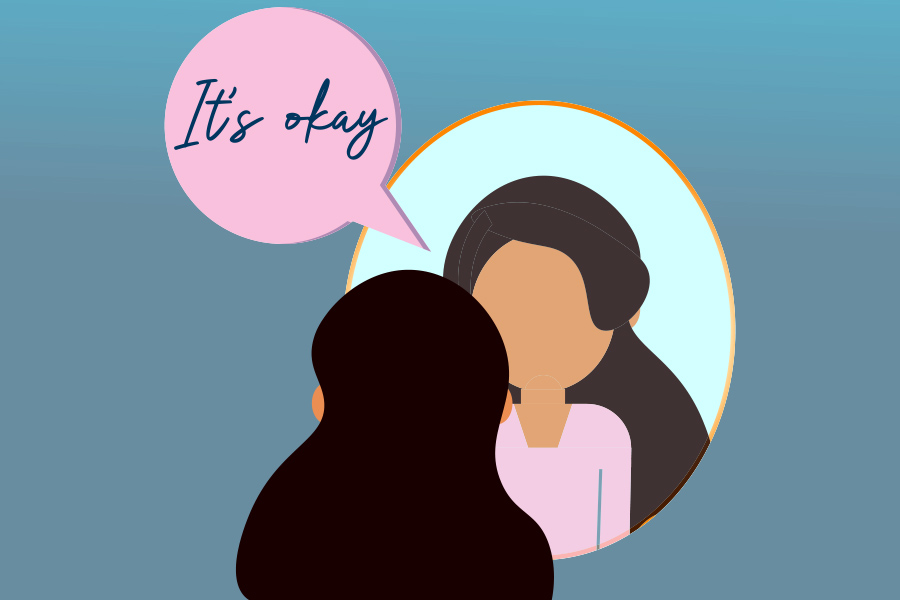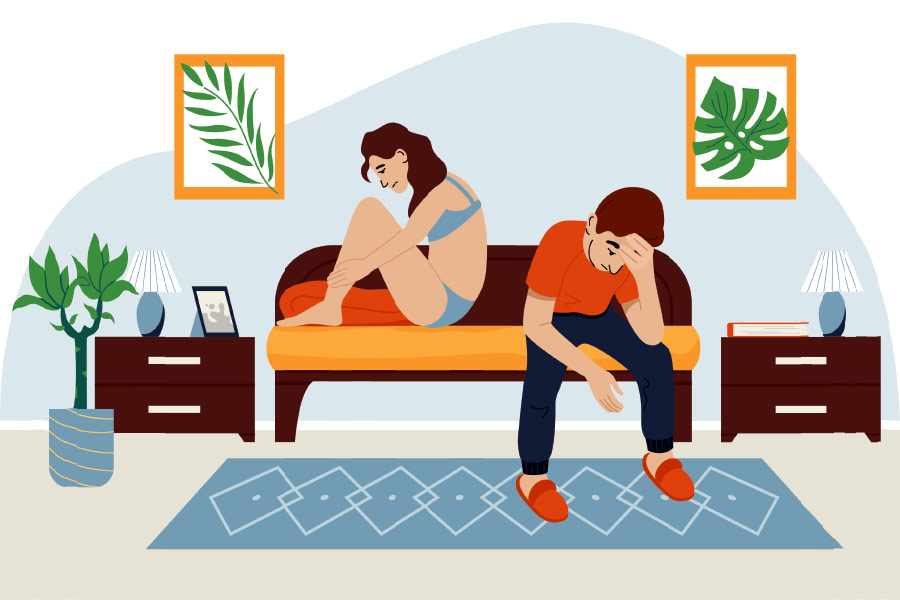I am a 25-year-old woman, and am so in love with my partner. My partner and I are both quite sexually inexperienced, and really want to experiment. But every time we try to get down to it, I struggle to enjoy it because I feel guilty as if I am doing something wrong. When I was growing up, I was taught that sex is something dirty and wrong unless I’m married and trying to have a baby. Even though I want to do it, I feel guilty thinking about sex. How can I overcome these feelings and enjoy myself?
— Guilty Garima
Dear Guilty Garima,
Thank you for sharing your feelings with me. Experiencing sexual shame is quite common when you are brought up in a culture that makes sex look ‘impure’ or ‘wrong’. Let’s make one thing abundantly clear — there is nothing wrong in expressing your sexuality in a way that feels right to you as long as you and your partner(s) are consenting adults. You have a right to engage in or abstain from pleasure, regardless of whether or not you want to be married or have babies.
You are not alone
I remember being in the playground at age 5 and when my skirt flew up as I jumped down from the jungle gym, a fellow 5-year-old classmate screamed “shame-shame-poppy-shame”. She had been told, right from age 5, that the area between our legs should be associated with shame. The all-girls school I went to from kindergarten to high school had strict rules around any interactions with boys — even young brothers weren’t permitted to enter the campus to pick up their sisters. From a young age, there was a lot of not-so-subtle messaging that relationships, love, and sex are inherently bad and must be avoided at all costs. Especially if you’re a ‘good girl’. I share my personal story to say: you’re not alone.
Associating ‘purity’ with the lack of sex is something that quite a few conservative religions and cultures do to control and limit freedom of sexual expression, especially for women. “Purity Culture robs us of our ability to experience full sexual health,” says Erica Smith (check out her content on @ericasmith.sex.ed on Instagram), who does a lot of work to debunk what she calls ‘purity culture’ in USA, and has great resources for those dealing with shame.
Similarly, Afrosexology, a US-based organisation aimed at reclaiming Black sexuality and driving sexual liberation for Black folks, has created an ‘ABCD’ method for overcoming sexual shame.
Learning process
Here’s the Afrosexology ABCD framework, with some of my thoughts:
A: “Acknowledge the source of the message”
To start off, ask yourself where you first got this idea that sex is something to feel bad or guilty about? The answer could be simple — a specific interaction, a quote, or a conversation. Reflect on this question, be it alone or with a sibling or childhood friends who grew up with you. Was it a teacher? A neighbourhood aunty? A parent? A religious leader?
It could be a simple answer, but it could also be a broader vibe around sexuality. For instance, in the 1990s, when the Kaanta Laga song played on TV, did older family members quietly avert their gaze and change the channel because of the provocative dancing and revealing clothes? Are people in your culture or community shamed for the way they dress, the people they’re attracted to or how their bodies look? So much of this is an integral part of how we perceive the ‘rights’ and ‘wrongs’ of sexuality.
B: “Be compassionate with yourself”
Sitting with difficult feelings is not fun, especially when it is about something as personal as sexuality. It’s okay to feel what you’re feeling, it’s okay to feel upset or angry. Years and years of social messaging have brought you to this point and unlearning won’t be an overnight task. Give yourself love, time and care.
It can also help to loop in your partner so that you can both work on being compassionate with each other. Take pauses when you feel an “ick”, tell your partner it’s not personal but just something you are working through. Find ways to take baby steps at a pace that you feel comfortable.

It is okay to feel the way you are feeling — unlearning years of social messaging won’t happen overnight Shutterstock
C: “Challenge the message”
Talk, read and listen to other people’s stories and experiences. The biggest way you can move ahead is to educate yourself. You have taken the first step by asking this question!
You may want to try checking out TV shows that have positive depictions of sexual exploration — I like Sex Education, Heartbreak High, Sense8, and Lust Stories* (*some are not so positive and depict sexual assault, so read synopses) on Netflix. You can also check out these books — Come As You Are by Emily Nagoski, which is an excellent read on female pleasure, and Unashamed: Notes from the Diary of a Sex Therapist by Neha Bhatt, which is next on my reading list, as it dismantles shame in the Indian context.
By listening to other people’s lived experiences, conversing with friends and engaging with stories of sex positivity and unlearning sexual shame, you can begin to challenge the narrative you may have grown up with.
D: “Develop pleasure practices”
Lastly, and perhaps most importantly, begin to heal your own relationship with pleasure. Developing pleasure practices can look simple, and even non-sexual. It could be finding moments of joy with your cup of chai every morning, enjoying a work-out a lot, or kissing and cuddling with your partner. There isn’t one “correct” way to experience pleasure. The more you tap into your body, your senses, and simply what feels good to you, the more you can start to feel comfortable with experiencing pleasure in the bedroom as well.
“Pleasure is […] what our bodies, our human systems, are structured for; it is the aliveness and awakening, the gratitude and humility, the joy and celebration of being miraculous.” says adrienne maree brown in her book Pleasure Activism: the politics of feeling good (do check out the book for a deep-dive and some reflection activities!).
Wishing you all the joy and pleasure you desire through your exploration, minus all the shame and stigma!
Karishma Swarup is a Kolkata-born and raised sexuality educator, Instagrammer (@talkyounevergot) and works at a global consulting firm. She busts myths about sex, pleasure, intimacy, orgasms, periods, and all things related to sexual health.
If you have a question you would like Karishma to answer, send an email on mykolkata@telegraphindia.com with the subject line ‘Questions for Karishma’ or DM/comment on our Facebook, Instagram, or Twitter.



